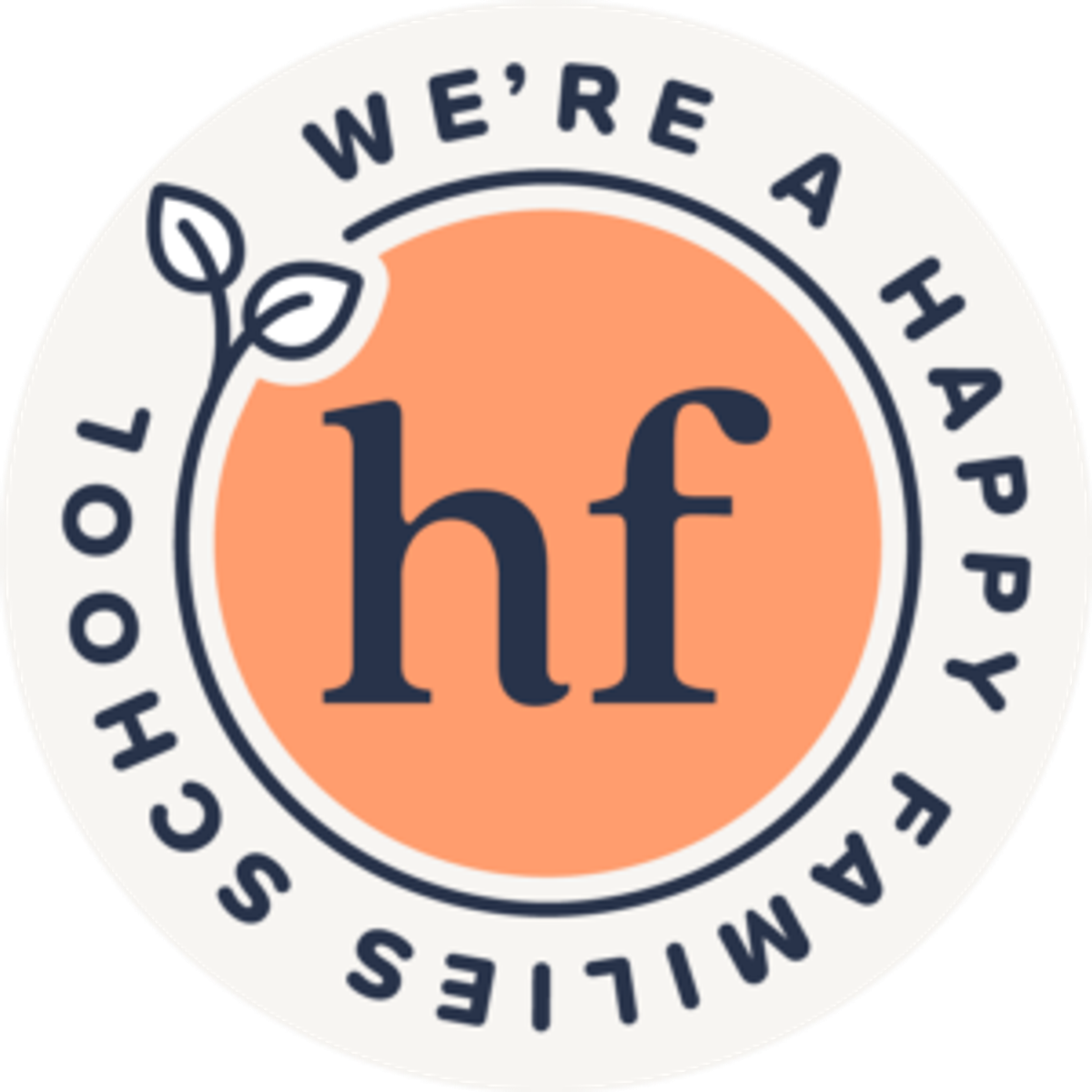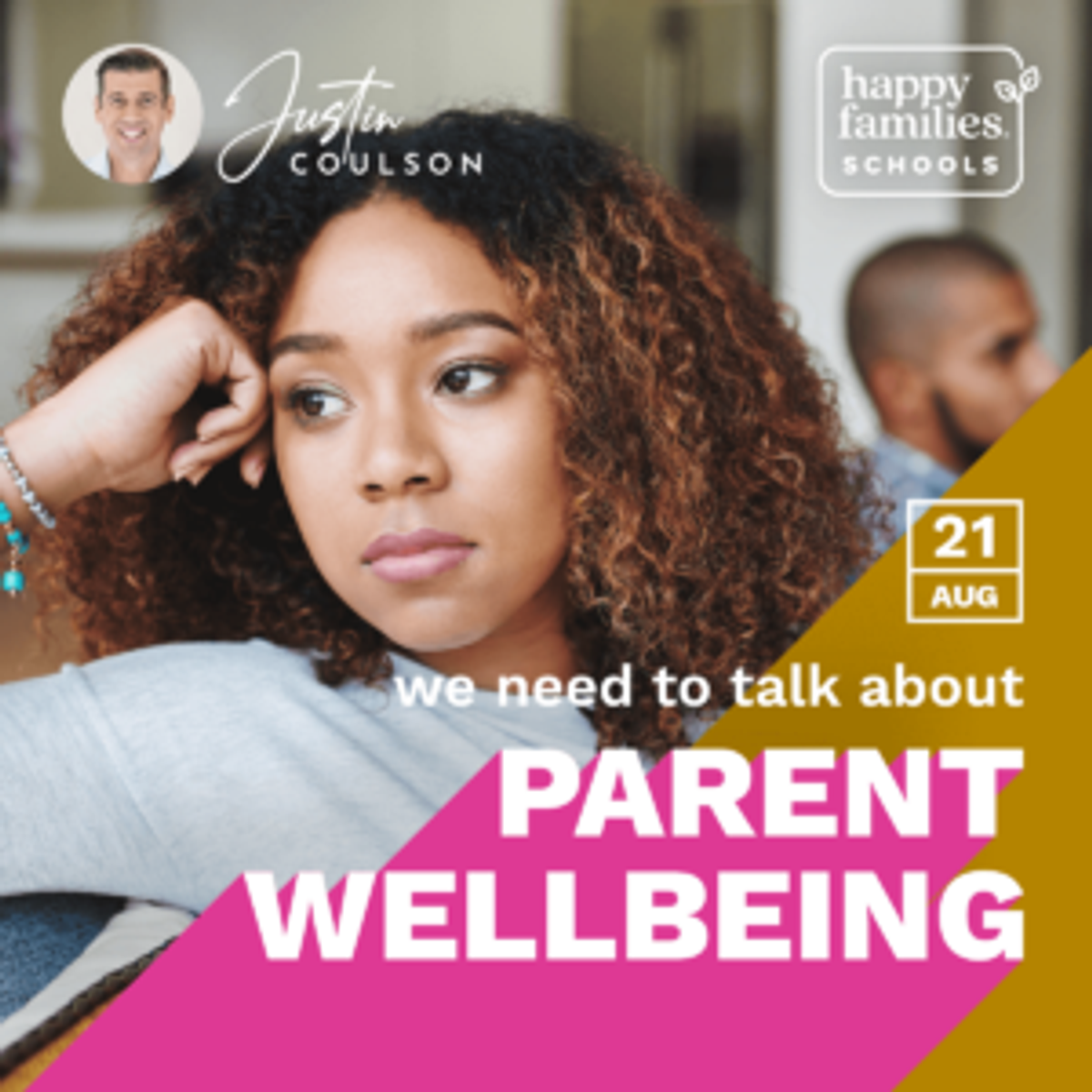Parent Partnerships

We are a Happy Families
School!
Just in case you still don't know, our school is subscribed to the Happy Families School Membership! Owned and run by Dr Justin Coulson, one of Australia’s leading parenting experts, the membership offers a wealth of parenting education and resources.
We will regularly share resources available through our membership with you, including Insight Articles and Live Webinars. You can also access your resources at any time using the below URL (unique to our school) and password.
URL & PASSWORD
Corpus Christi School - Kingsville
https://schools.happyfamilies.com.au/login/ccki
PASSWORD: happyccki
We recommend bookmarking this link. You should only need to put the password in once and the site will remember you.
INSIGHTS ARTICLES
A new Insights article is released weekly during the term and we will include these with the school newsletter. Insights articles are written by Dr Justin Coulson and other leading experts and provide parenting education and support for a wide variety of traditional and contemporary parenting challenges. You can also access 300+ previous Insights articles on our school’s URL.
PARENT WEBINARS
You have access to 4 live webinars a year (one per term). We will announce upcoming webinar details in the Insights articles. You’ll have access to the recording via our school’s URL but as the webinars are live, we recommend you watch them in real time so that you can ask Dr Justin and / or the guest presenter any questions you may have.
We hope you enjoy the Insights and webinars!
UPCOMING LIVE WEBINAR RESOURCES
We Need to Talk About Parent Wellbeing
Mental Health is on everyone’s lips. There are countless news articles about mental health every year – in fact over the course of a typical day, there are more articles published about mental health than there are about other hot topics like AI, the risk of a recession, and even Taylor Swift!
With 44% of Australian adults having experienced a mental disorder over the course of their lives, and 1 in 5 having experienced symptoms of a mental disorder over the last 12 months, it’s no surprise that Google searches for mental health queries reached an all-time high in 2021.
Australian parents and Aussie kids are struggling. Anxiety, depression, and burnout are breaking too many of our kids, and too many of us. Parents are floundering. Children are languishing. Our mental health services are overwhelmed. And we need answers and help. Now.
In the past 20 years, researchers have made enormous progress on how we can increase wellbeing, even when mental illness is a part of our lives. And in this webinar, Dr Justin Coulson – one of Australia’s leading parenting and wellbeing speakers – will walk you through the most cutting-edge stats, strategies, and supports to build wellbeing in your family, your children, and even in you!
Join this webinar to learn –
- how to flourish even if you or your kids are in the midst of mental health challenges
- the 5 most powerful evidence-based interventions to build a flourishing life
- the secret to a life well lived, and
- the biggest risk factors and protective factors of mental health
Monday 21 August
8pm AEST |
https://schools.happyfamilies.com.au/we-need-to-talk-about-parent-wellbeing
*Note that the link will only work if you are already signed into your school’s page
PUBLISHED AUGUST 10, 2023
ISSUE 5 | TERM 3 | 2023
Written by Dr Justin Coulson
Mental Health is on everyone’s lips. With 44% of Australian adults having experienced a mental disorder over the course of their lives, and 1 in 5 having experienced symptoms of a mental disorder over the last 12 months, it’s no surprise that Google searches for mental health queries reached an all-time high in 2021.
Additionally, across Australia there are 102 days dedicated every year to raising awareness of important mental health and wellbeing related topics, including Neurodiversity Week in March, World Infant, Child and Adolescent Mental Health Day in May, and R U OK? Day in September. A growing number of Australian states and territories are also promoting Mental Health Month in October.
With all the talk about mental health and wellbeing, it’s valuable to understand that mental illness and mental health are actually different things. On the one hand, we have mental illness. Low mental illness means you aren’t experiencing symptoms of mental illness (such as depression and anxiety), high mental illness means you are. And on the other hand, we have mental health. If you have high mental health, you have a generally positive mood and outlook on life and are functionally optimally. You are said to be ‘flourishing’. If you have low mental health, you may feel hollow or empty, and have a generally low mood. You are said to be ‘languishing’.
For most people experiencing mental illness, interventions such as therapy and medications are both valuable and necessary. However, to improve mental health and lead a flourishing life, there are simple changes that anyone can make even if they are struggling with mental illness.
Let me ask you a simple question.
What makes life most worth living for you?
The simplest way to experience improved mental health and wellbeing is to identify the answer to that question and then find a way to do a little more of those things each day. Let me outline a few things science points us to that can help:
Sleep
This might be the most boring thing I can put on the list of ideas to bolster wellbeing (for you and your kids). But it might also be the most valuable item on the list.
Have you noticed what a difference it makes when you feel well rested? Have you noticed how much better you behave (not to mention the kids) when you’ve had a full night’s sleep? It’s no surprise that sleep loss is associated with negative moods and impacts emotional regulation. Sleep makes you a better parent. It makes you a better partner, employee… it makes you a better person. Prioritising a solid 8 hours of sleep per night is just about the best thing you can do to be happier.
Build Connection
Relationships are at the core of our wellbeing. Find ways that you and your children can connect with one another and with others regularly and in healthy, positive ways. Simple ways to build connection are smiling at each other (even fake smiles can amplify and initiate feelings of happiness), spending quality time together, and telling the people around you that you love them.
Get Active
A recent study from the University of South Australia found that exercise is 1.5 times more effective than counselling or the leading medications at improving symptoms of depression, anxiety, and distress. Physical activity also keeps our brains healthy, increases positive mood and increases self-esteem, as well as reducing the risk of heart disease, cancer, and increasing bone health. The World Health Organisation recommends that children and adults aim for about 60 minutes of moderate to vigorous aerobic activity daily, but if you’re just starting out, replacing sedentary time with physical activity of any intensity will offer health benefits.
Slow Down and Smell the Roses
Nature is fuel for the soul. Spending time interacting with nature has a long list of benefits (including improved academic and task performance, stress reduction, reduced violence, increased inspiration, and improved mood), which can be achieved in as little as 120 minutes a week. You can boost your nature time by shifting the route of your walk to go through your nearest green space, taking your lunch break outside, or planning a weekly family trip to the forest, beach, or botanic gardens.
Have Fun
It might seem like a simple thing, but having a once-a-week family adventure can build connection, encourage physical activity, and get us out into nature, plus it is fun! Having fun can be free, take the soccer ball to the park, do a scavenger hunt, or take a bucket and spade to the beach.
On the road to flourishing
Work, school, homework, cleaning the house, finances… these are all important things, but they’re not the things that make life worth living. If we want to get on the road to flourishing, we may need to re-prioritise our time, making sure that we build in opportunities for sleep, connection, movement, nature, and fun. Simple swaps are all it takes to bring greater positivity into your life.




